my package.json
"@expo/vector-icons": "^13.0.0",
"@react-native-firebase/app": "^17.1.0",
"@react-native-firebase/auth": "^17.1.0",
"@react-native-firebase/firestore": "^17.1.0",
"@react-navigation/bottom-tabs": "^6.5.4",
"@react-navigation/core": "^6.4.6",
"@react-navigation/native": "^6.1.3",
"@react-navigation/native-stack": "^6.9.9",
"@reduxjs/toolkit": "^1.9.2",
"expo": "~47.0.13",
"expo-splash-screen": "~0.17.5",
"expo-status-bar": "~1.4.2",
"react": "18.1.0",
"react-native": "0.70.5",
"react-native-safe-area-context": "4.4.1",
"react-native-screens": "~3.18.0",
"react-redux": "^8.0.5",
"redux": "^4.2.1"
i create a slice store a createSynchThunk for my call api with firebase
export const fetchProductCatList = createAsyncThunk(
"productCat/fetchProductCatList",
(param) => {
apiGetProductCat()
.then(e => {
return e
}).catch(err => {
return err
})
}
);
My extra reducer
extraReducers: (builder) => {
// Add reducers for additional action types here, and handle loading state as needed
builder.addCase(fetchProductCategoriesList.fulfilled, (state, action) => {
console.log('extraReducers fetchProductCategoriesList action.payload', action)
})
},
my function callApi
export function apiGetProductCat() {
return new Promise((resolve, reject) => {
firestore()
.collection('product-categories')
.get()
.then(querySnapshot => {
let map = {}
querySnapshot.forEach(documentSnapshot => {
const data = documentSnapshot.data()
console.log('data', data)
map[documentSnapshot.id] = {}
map[documentSnapshot.id] = {
id: documentSnapshot.id,
...data
}
});
resolve(map)
})
.catch(err => {
reject(true)
});
})
}
I start my action in my view react-native
useMemo(async () => {
await props.dispatch(fetchProductCatList())
setLoaderScreen(false)
},[])
My error function apiGetProductC in catch :
[TypeError: undefined is not a function (near '...this._firestore.native.collectionGet...')]
I can connect user with login and password. I can use Firebase.auth() to retrieve my email user. But i can make a get for my collection... I don't understand.
Thanks for help!
update 02/14/2023 -> I updated Expo in package.json
"expo": "~47.0.12"
library in build.gradle
classpath('com.android.tools.build:gradle:7.3.1')
classpath('com.google.gms:google-services:4.3.15')
but it not resolved my problem
